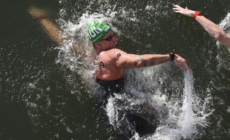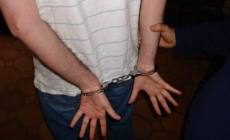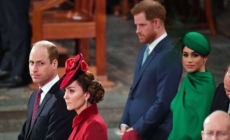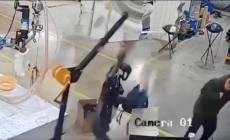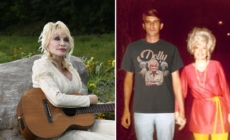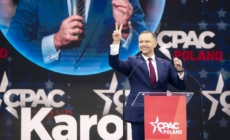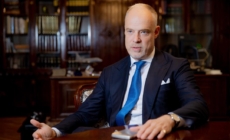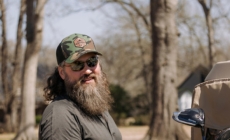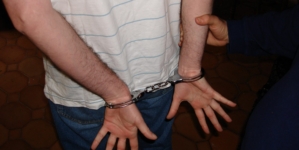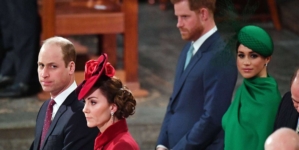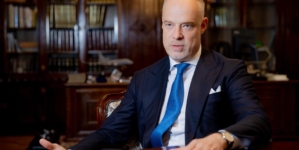-
Open Water Swimmers Exceed all Expectations at European Championships - 27 mins ago
-
Hungarian police crack down on Ukrainian scammers - 28 mins ago
-
2 dead in Baldwin Park shootout, including young officer - 30 mins ago
-
Meghan Markle’s Instagram Views Compared to William and Kate - 33 mins ago
-
Humanoid robot malfunctions, sparks viral panic - 37 mins ago
-
Dolly Parton leans on faith to cope with grief after husband Carl Dean’s death - 40 mins ago
-
Red Sox vs. Braves Highlights | MLB on FOX - 44 mins ago
-
“What a Nail-Biter!” – Viktor Orbán Congratulates Winner of Polish Elections - about 1 hour ago
-
Defense Minister: Globalist world model has failed, and the future belongs to patriots - about 1 hour ago
-
Justin Baldoni Body Double Reveals What Blake Lively Was Like on Set - about 1 hour ago
JD Vance Rebuked by Germany’s Scholz
Germany’s chancellor, Olaf Scholz, has hit back at Vice President JD Vance who had criticized European nations over free speech and their treatment of far-right parties.
A day after Vance told the Munich Security Conference that the biggest threat to European their security came not from Russia and China but “from within,” taking aim at European Union “commissars,” a reference to officials in the Soviet Union, Scholz insisted that Germany would not accept foreign interference in its domestic politics.
Newsweek has contacted the White House for comment.
Getty Images
Why It Matters
Vance was expected to address Washington’s approach to war in Ukraine on Friday and so his comments instead taking aim at how European countries handle the far-right have caused a stir.
Scholz’s response appears to not only target Vance’s criticism of Europe but also his reported meeting afterwards with Alternative for Germany (AfD) co-leader Alice Weidel ahead of this month’s elections.
What to Know
Vance criticized European allies, accusing them of suppressing free speech, losing control of immigration and refusing to work with far-right parties, in his speech on Friday.
Vance said that the biggest threat to Europe’s security was “from within” and afterwards met with AfD co-leader Alice Weidel, who enjoys the support of key Trump administration figure, Tesla founder Elon Musk.
But Scholz told the conference on Saturday that Germany would not accept “outsiders” interfering in Germany’s democracy in favor of the AfD and rejected Vance’s demand that mainstream parties start working with the far right.
Scholz said support for the far-right party was counter to the lessons Germany had learned from its Nazi past and the Donald Trump administration’s backing of the AfD “is not proper.”
Michael Butler, professor the Department of Political Science at Clark University, Worcester (MA), told Newsweek that Vance had snubbed Scholz and this was no surprise “given the chancellor’s looming near-certain defeat in the polls.”
He said that Vance’s comments showed the U.S. administration had allowed ideology to supersede pragmatism as the conference was a major chance for American and European officials to discuss the future of Ukraine.
“Even if their perspectives on that future may be diverging wildly, treating the conference as merely a chance to poison the well of domestic politics in Germany seems extremely short-sighted from a strategic standpoint,” Butler said.
What People Are Saying
German Chancellor Olaf Scholz said on Saturday: “We will not accept outsiders intervening in our democracy, in our elections, in the democratic formation of opinion in favour of this party.”
Michael Butler, professor the Department of Political Science at Clark University, told Newsweek: “Vance’s snub of Scholz is hardly surprising, given the Chancellor’s looming near-certain defeat in the polls; indeed, Trump Administration officials have said as much.
“Still, it is hard not to read this move as ideology again encroaching where pragmatism should reign.”
Vice President JD Vancesaid on Friday: “Unfortunately, when I look at Europe today, it’s sometimes not so clear what happened to some of the Cold War’s winners.”
What Happens next
Analysts have described Vance’s speech as a turning point in European-United States relations and questions over what the Trump administration has planned for the war in Ukraine will likely linger.
Germany’s election takes place on February 23. Scholz’s center-left Social Democratic Party and Germany’s other mainstream parties have ruled out working with the AfD.
Source link
